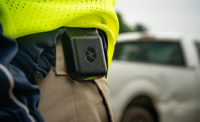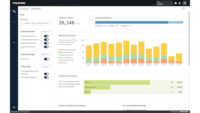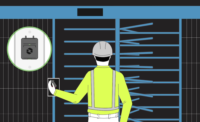Construction apps for field data entry often find themselves competing with pens and clipboards. Looking to speed up another old-fashioned process, software maker Riskcast is expanding its time card management app with time and materials tracking—processes that can involve considerable manual paperwork.
For E-J Electric Installation Co., Riskcast was a serious upgrade from the approach it had been using just a few years ago. “We replaced many manual processes we had using paper and Excel,” says Anthony E. Mann, president and CEO of E-J Electric Installation. “It has reduced a lot of redundant steps of transferring and recording the same data multiple times.”
The basic time card data Riskcast focuses on has become the basis for its expansion into other tedious paperwork. “The idea is to use our system to capture everything,” explains Alec Thomson, co-founder and CEO of Riskcast. “Hours, production quantities, all these things can now get signed off remotely by the general contractor.”
The new Riskcast Time & Materials module was originally slated to go live later this year, but the software maker chose to move up the release due to an uptick in interest from industry companies scrambling to track the status of their projects amid the halts and shutdowns caused by the COVID-19 pandemic.
“We’re seeing an uptick in folks looking to take these processes digital,” says Thomson. “And at this moment in time with some projects on pause, people are looking at different ways of doing things.”
E-J Electric Installation has been running a trial of Riskcast’s new Time & Materials features and is finding it useful during this unusual time. The firm “feels it’s going to be a really impactful tool,” says Mann. “It takes the same concept of reducing a lot of redundant processes [by] leveraging the data that creates the T&M ticket directly for the foreperson’s time card entries.”
But keeping construction projects going during the pandemic requires other approaches, and E-J Electric says it is also interested in another new aspect of the app.
“Riskcast has just released a new feature called Contact Tracing that will map any worker that tests positive on a jobsite to all of the people that person has been in contact with based on the time cards and crews to show potential exposure,” says Mann. He adds that as E-J Electric has continued to work during this time, it is taking additional steps to ensure the safety of its workers.
For Thomson, Contact Tracing was a natural outgrowth of data Riskcast already was capturing.
“We have the data, collecting time cards of crew entering and leaving, and where they worked on these projects,” he says. “Based on that, we can give the customer the ability to search for a specific person and then go back in time and search the projects they were on, the crews that were with them and do all that outward in a spiderweb.”
The Riskcast Contact Tracing feature launched May 12, and according to Thomson, it was something the company was unsure about pursuing until customers asked for it. “With the liability that opens up when you start tracking things like that, we would have waited longer if not driven by customer demands,” he explains. In particular, Thomson says some owners and public agencies were asking contractors and building trades if they had ways of tracking personnel who turned out to test positive for COVID-19.
Thomson notes that even as the concerns over the virus may fade, this heightened awareness may lead to more interest in access control on jobsites. “Those in the industry that want that added control will use this time as the case to get it.”






Post a comment to this article
Report Abusive Comment